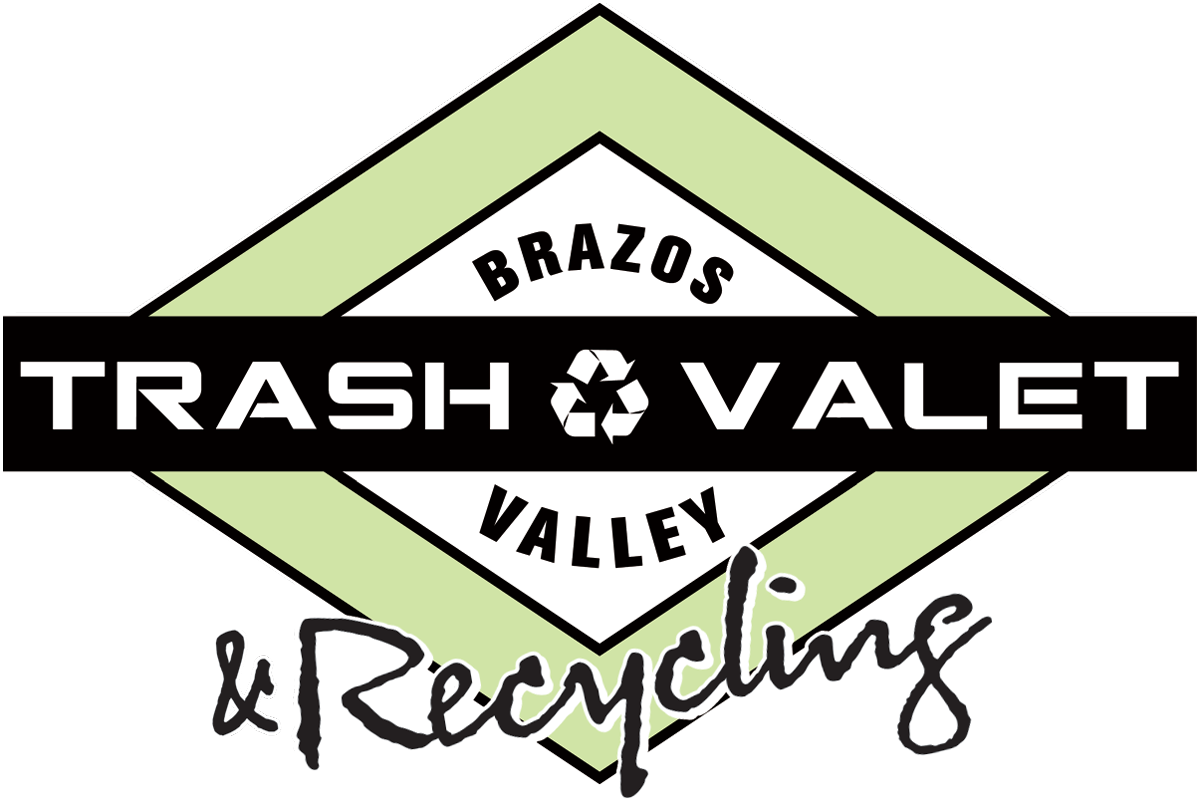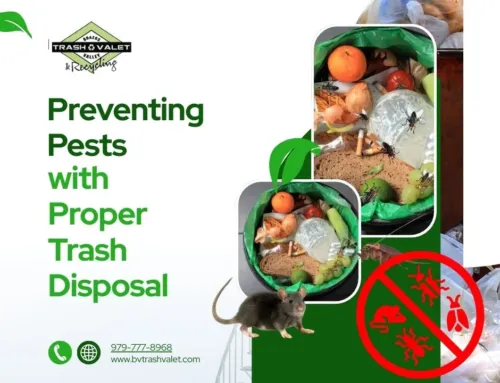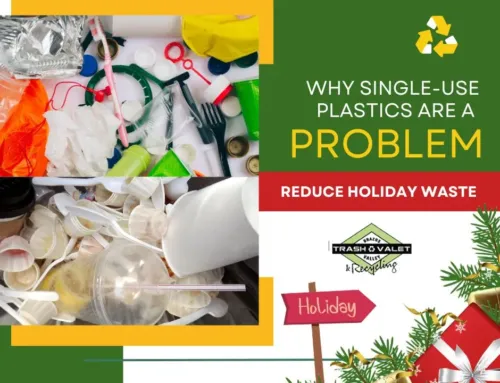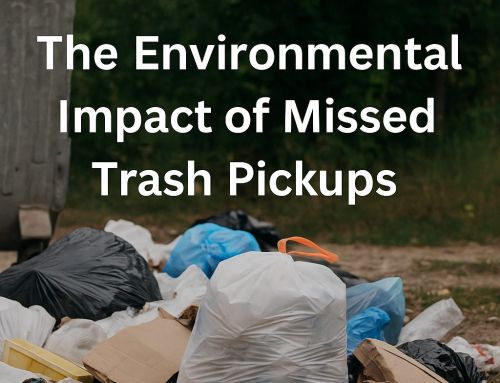What Is Land Pollution?
“Pollution” is a term that comes up frequently in conversations about the environment. Most of us know by now that pollution refers to the wearing down and degrading of natural resources. But when we talk about pollution, the conversation usually surrounds air pollution, such as the depletion of the ozone layer that protects the earth from harmful UV rays of the sun. While air pollution is an important conversation, it is not the only kind of pollution. In fact, when it comes to your trash and recycling, one of the most important types of pollution to keep in mind is land pollution.
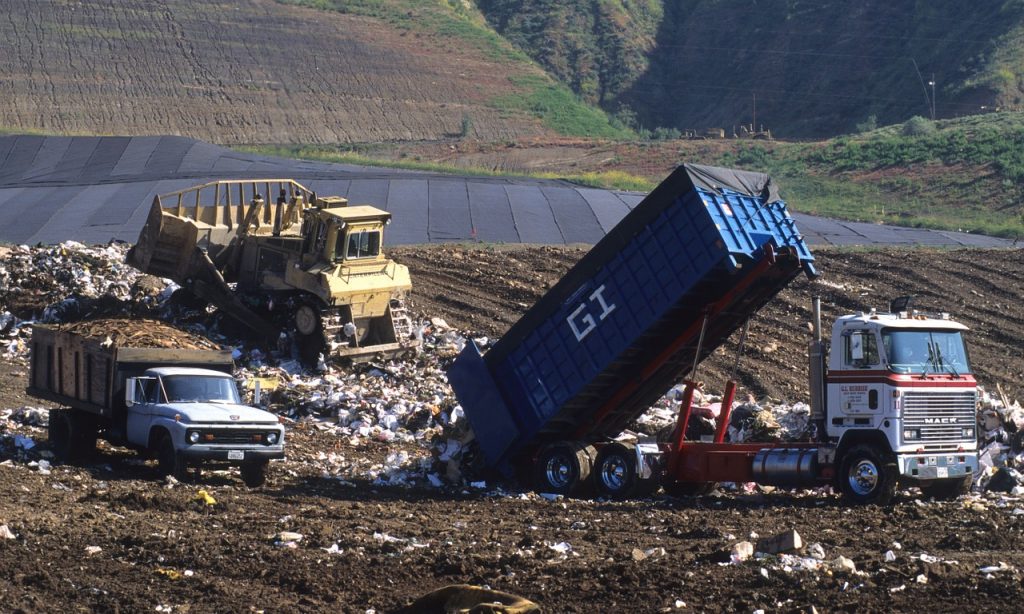
What is Land Pollution?
Land pollution is the degradation of the earth’s surface as a result of human activity and waste. Some common examples include soil erosion or drastically changed climate patterns, particularly where it concerns agriculture. Land pollution can be caused by a few things. The expansion of cities and deforestation, making for less tree over, is a common cause. Mining can also cause sinkholes and cave ins. Overcrowded landfills also contribute to land pollution, particularly when harmful chemicals from landfill waste pollute the soil.
The Dangers of Land Pollution
One of the biggest issues with land pollution is that it results in a loss of fertile land, which can have a massive damaging impact on agriculture. Not only is there less fertile land for growing fruits and vegetables, but there are less grazing patches for livestock. Wildlife are also endangered by deforestation, loss of ecosystems, and polluted land and soil. The lack of tree cover and natural ecosystems can also lead to changes in climate patterns and contribute to climate change. It can have effects on human health, as well. When soil is chemically contaminated, those chemicals can contaminate the produce we eat, leading to sometimes fatal illnesses.
What Does Land Pollution Have to Do With Trash and Recycling?
Again, one of the factors that contributes to land pollution is overcrowded landfills. Of the 258 million tons of solid waste thrown out by Americans throughout the year, whatever isn’t recycled is left in a landfill. Not only does this look unattractive, but landfills can have a catastrophic effect on the quality of the land. It can be even worse when recyclable materials end up in the trash that’s deposited in the landfill. Plastic, for instance, isn’t biodegradable and releases harmful chemicals that can pollute both air and soil. Leftover materials from sewage treatment often also goes to landfills.
What Can You Do?
Obviously, recycling regularly is a great way to decrease the amount of materials left in landfills, especially non-biodegradable materials like plastics. Make sure to check the acceptable materials list of your recycling facility — Brazos Valley Trash Valet & Recycling accepts all plastics as well as bottles, cans, cardboard, newspapers and magazines. You can also make an effort to cut down on your waste, using food waste as compost, choosing products that use less packaging, and switching to reusable products.
Brazos Valley Trash Valet & Recycling offers complimentary recycling with our monthly subscription for trash pickup. Contact us today for more information.
Share This Story, Choose Your Platform!
What Is Land Pollution?
“Pollution” is a term that comes up frequently in conversations about the environment. Most of us know by now that pollution refers to the wearing down and degrading of natural resources. But when we talk about pollution, the conversation usually surrounds air pollution, such as the depletion of the ozone layer that protects the earth from harmful UV rays of the sun. While air pollution is an important conversation, it is not the only kind of pollution. In fact, when it comes to your trash and recycling, one of the most important types of pollution to keep in mind is land pollution.

What is Land Pollution?
Land pollution is the degradation of the earth’s surface as a result of human activity and waste. Some common examples include soil erosion or drastically changed climate patterns, particularly where it concerns agriculture. Land pollution can be caused by a few things. The expansion of cities and deforestation, making for less tree over, is a common cause. Mining can also cause sinkholes and cave ins. Overcrowded landfills also contribute to land pollution, particularly when harmful chemicals from landfill waste pollute the soil.
The Dangers of Land Pollution
One of the biggest issues with land pollution is that it results in a loss of fertile land, which can have a massive damaging impact on agriculture. Not only is there less fertile land for growing fruits and vegetables, but there are less grazing patches for livestock. Wildlife are also endangered by deforestation, loss of ecosystems, and polluted land and soil. The lack of tree cover and natural ecosystems can also lead to changes in climate patterns and contribute to climate change. It can have effects on human health, as well. When soil is chemically contaminated, those chemicals can contaminate the produce we eat, leading to sometimes fatal illnesses.
What Does Land Pollution Have to Do With Trash and Recycling?
Again, one of the factors that contributes to land pollution is overcrowded landfills. Of the 258 million tons of solid waste thrown out by Americans throughout the year, whatever isn’t recycled is left in a landfill. Not only does this look unattractive, but landfills can have a catastrophic effect on the quality of the land. It can be even worse when recyclable materials end up in the trash that’s deposited in the landfill. Plastic, for instance, isn’t biodegradable and releases harmful chemicals that can pollute both air and soil. Leftover materials from sewage treatment often also goes to landfills.
What Can You Do?
Obviously, recycling regularly is a great way to decrease the amount of materials left in landfills, especially non-biodegradable materials like plastics. Make sure to check the acceptable materials list of your recycling facility — Brazos Valley Trash Valet & Recycling accepts all plastics as well as bottles, cans, cardboard, newspapers and magazines. You can also make an effort to cut down on your waste, using food waste as compost, choosing products that use less packaging, and switching to reusable products.
Brazos Valley Trash Valet & Recycling offers complimentary recycling with our monthly subscription for trash pickup. Contact us today for more information.
